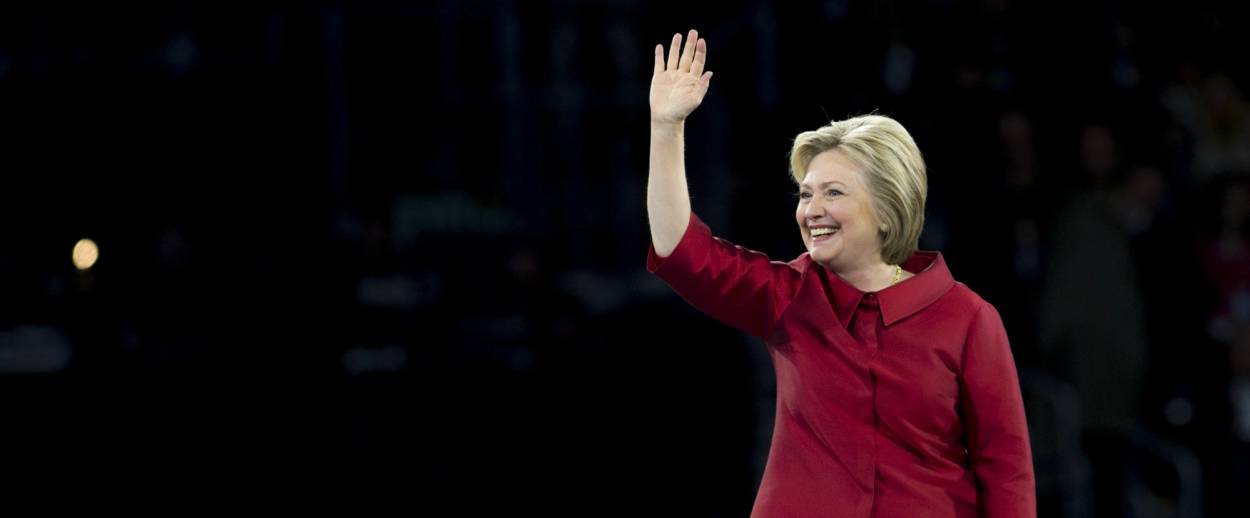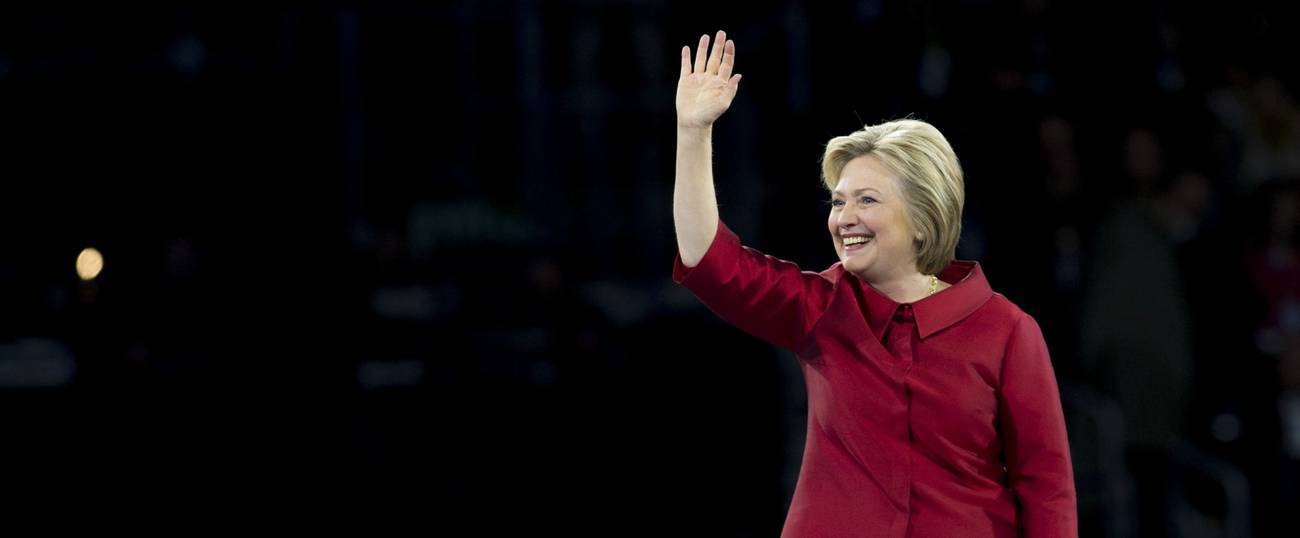Hillary Clinton Has Won My Millennial, Feminist Vote
The double standards of the criticisms surrounding Clinton’s candidacy, many of which are centered on her gender, have fueled the political fire inside of me




I have a confession: I’m supporting Hillary Clinton for president.
This shouldn’t be a radical admission. After all, as the former Secretary of State herself reminded everyone last week, she has received more votes this election season than any other candidate running for any party’s nomination, including Donald Trump. Clearly, I’m in good company, right?
Wrong. Because even though I’m a woman—Clinton’s target demographic and the “identity” group with which she does best—I’m also a college student. A millennial. Young. And by an overwhelming margin (in Iowa, it was 6:1), voters just like me are not rallying behind the only woman to ever win a presidential primary; instead they are aligning themselves with Bernie Sanders. Article after article after article attempts to explain this groundswell of young, female support for Sanders, but I don’t need them to understand the phenomenon: Until recently, I was living it.
I entered college a Hillary Clinton enthusiast. The first poster I plastered in my dorm room was a piece of red, white, and navy blue cardboard from 2008 with “Hillary for President” printed in bold typeface across it. Over the next two years, though, during my tenure as a board member of the College Democrats no less, I grew cynical—and, as college students are wont to do, far more liberal. So when Bernie Sanders threw his hat into the 2016 race to challenge Clinton for the Democratic nomination, I eagerly endorsed him. My posts on social media became, for the most part, hypercritical of Clinton and hyper-sympathetic to Sanders. I was made an admin for a “Students for Bernie Sanders” group on Facebook. I even became a regular contributor to his campaign (only $5 a month, but five bucks is five bucks, especially to a college student). All the while, I refused to accept that supporting a male candidate over a female one was bad feminism.
Now, after 29 Democratic primary contests, I’ve finally come aboard the Clinton train. Again. What changed? A lot. I still like Bernie; he’s still my dream Jewish grandpa, and if he wins the nomination, I’ll go door-knocking for him in the fall. But the nexus of my electoral “evolution” (to borrow a term my girl Hil uses often), can be boiled down to one thing: sexism.
As Clinton solidified her lead over Sanders, I began to observe an increased intensity in the opposition she faced—from the media, from Republicans, and even from within her own Party, via the “Bernie Bros,” etc. For nothing but the sake of eventual Democratic party unity, I found myself defending her, time and again. In doing so, I rediscovered the merits of a Clinton candidacy. Clinton is far from perfect—her policies have a tendency to follow political trends rather than set or revolutionize them—but her qualifications, from her pro-bono advocacy in Arkansas early in her career to her time as an integral member of President Obama’s cabinet (to name but a few), are undeniable. And surely, at least to those left of center, she’s a better option than anyone the GOP is optioning this election cycle. Especially Donald Trump.
Yet much of the vitriol aimed at her obscures this. What’s more, while much of the criticism of Clinton isn’t explicitly sexist, too much of it is sexist-adjacent—that is, delivered in coded language and dog whistles that make the playing field uneven.
I’m not voting for Hillary Clinton now simply because she is a woman. My vote is the product of a long list of factors, not the least of which includes her legislative experience and foreign policy acumen. But the sexism that’s been flung her way—by the right and by the left—has definitely fueled my fire.
Do I wish Clinton had been more progressive in the past? Of course. But there’s a reason that Sanders, arguably the most progressive candidate in the race, is an older, white man: I’m firmly convinced that in the ’90s, especially, when both candidates truly entered the public sphere, the female equivalent to Sanders would never have been taken seriously. Because his whiteness and his maleness don’t disrupt political norms, his policies can. And don’t even get me started about his delivery. As Sanders gets to rail against the rising cost of college education, she has to worry about sounding shrill. As he gets to preach the advantages of a single payer healthcare system (which Clinton herself advocated for in 2008), she has to worry about smiling enough. As he gets to bark about income inequality, she has to worry about Donald Trump insinuating she’s a bitch.
I’m sick of the double standards placed on women in politics and believe that the only way we can begin to change them is by electing a woman to the highest office in the land. Come April 19, the day New York holds its primary elections, I’ll be standing with other young, Jewish feminists like Lena Dunham, Audrey Gelman, Abbi Jacobson, and Ilana Glazer, ready to cast my ballot for Hillary Clinton, hoping that the rest of my generation chooses to join me before it’s too late.
Previous: ‘Broad City’ Goes Campaigning
Jordana Narin is an intern at Tablet